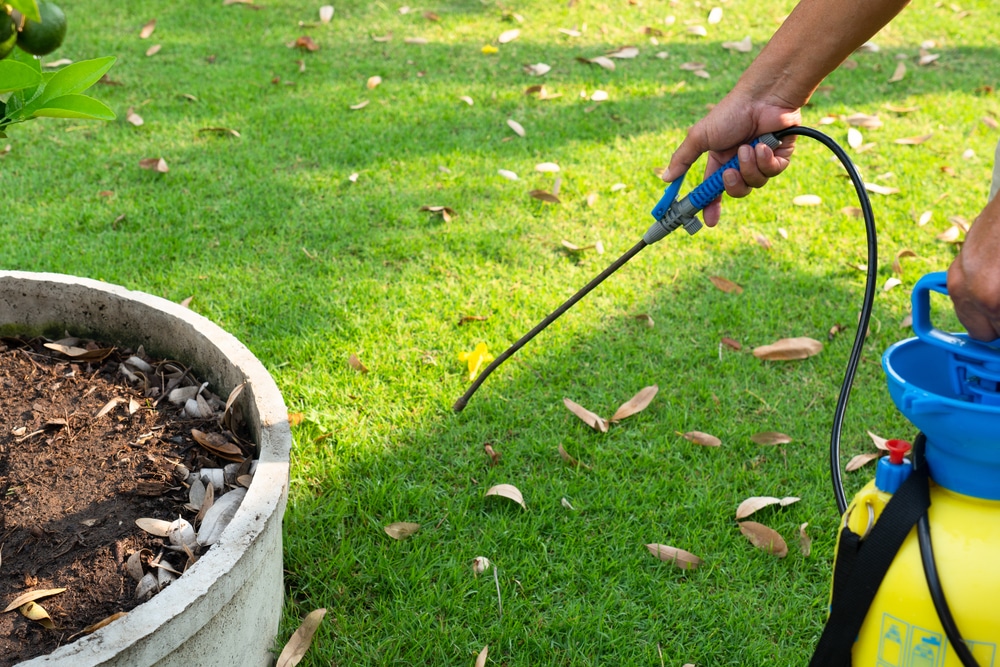
So let’s break this down together: Is there such thing as ‘too late’ when it comes to spraying for weeds? Well, yes and no. The answer depends on multiple factors including weed type (annual or perennial), weather conditions and your specific geographical location in Canada.
Understanding the Weed Life Cycle
First off, it’s important to grasp the basic life cycle of a weed. Why, you ask? Well, by understanding their growth patterns and behavior throughout different seasons, we can strategically plan our attack.
Weeds are pesky plants that have mastered survival tactics in diverse conditions. They typically follow an annual or perennial life cycle.
Annual weeds, as you might guess from the name, complete their entire lifecycle within one year – usually less. These invaders germinate quickly when conditions become favorable in spring and summer months; they grow rapidly and produce seeds before dying off with colder weather.
On the other hand, perennial weeds stick around for more than two years! Their root systems burrow deep into soil making them tougher to eradicate completely.
To give a clearer picture:
| Annual Weeds | Perennial Weeds | |
|---|---|---|
| Lifespan | Less than one year | More than two years |
| Seed production time | Spring/Summer | Throughout growing season |
| Root system depth | Shallow roots | Deep roots |
The best time to spray for weeds depends on these cycles. For annuals that sprout up in spring or summer months like crabgrass or chickweed – I recommend spraying early on while they’re still young seedlings; that’s when they’re most vulnerable.
As for those stubborn perennials like dandelions and thistles – it’s effective to apply herbicide during late summer or fall when these plants store food reserves underground for winter survival which helps transport toxins down into their deep root systems killing them from inside out!
And remember this: timing is everything! Catching those unwelcome garden guests at just right stage means all difference between successful weed control versus facing another round of battle next season.
Identifying Your Weeds: When Is It Too Late to Spray?
I’ll let you in on a secret. There’s an art and science to managing weeds, and timing is everything. So, when exactly is it too late to spray for weeds?
In general, the best time to apply herbicides is when the weeds are actively growing. That’s usually in the spring or early summer for most species. If you’re looking at your lawn and it’s already overrun by mature plants with seeds ready to scatter, I hate breaking this news but—you’ve missed your window.
Here are a few key points:
- Younger Weeds: Younger plants tend not only be more susceptible to weed killer but also less likely able spread their seeds.
- Weather Conditions: Herbicides work best under specific weather conditions—usually mild temperatures (between 60°F and 85°F) without any rainfall forecasted within 24 hours of application.
- Weed Species: Some hardy perennials may require multiple treatments throughout their growth cycle.
Let me share some data that gives perspective about ideal times for different weed types:
| Weed Type | Ideal Time To Spray |
|---|---|
| Annuals | Early Spring |
| Biennials | Spring / Fall |
| Perennials | Throughout Year |
However, if those pesky invaders have gotten ahead of you this season don’t despair! You can still take steps towards reclaiming control over your yard by manually removing what you can now while planning better timed treatments next year.
Remember though—there isn’t one-size-fits-all answer here as every garden has its own unique set of challenges based on climate zone, soil type among other factors. Therefore understanding what kind of weed(s) have taken up residence in your landscape will help guide treatment strategies effectively.
Ultimately knowing when it’s too late spray comes down understanding lifecycle each particular plant species infesting our yards gardens – which might sound like daunting task first! But trust me—with bit research patience anyone become pro beating back unwanted green invaders before they’ve chance establish stronghold!
So keep those eyes peeled stay vigilant because battle against weeds never truly ends—but good news we’re all capable becoming masters our domains!
Colin Macmillan is a seasoned entrepreneur and the CEO of Riverwood Landscape, a leading landscaping company based in Canada. He has been at the helm of the company since leaving high school, demonstrating his strong leadership skills and business acumen.
Colin’s expertise lies in various aspects of landscaping, including lawn care, interlocking, sod installation, and commercial maintenance. His hands-on approach and dedication to the craft have been instrumental in building Riverwood Landscape into a reputable brand.
One of his most notable achievements is the creation of a successful landscape franchise that services multiple locations. This accomplishment underscores his strategic thinking and ability to scale operations effectively.
Colin has also had the privilege of working with Guelph Hospital for landscaping and maintenance, a testament to the trust and reliability that his company has earned over the years.
His professional mission is to offer the best services and experiences for customers, a goal that he tirelessly pursues. Colin’s commitment to excellence and customer satisfaction continues to drive the growth and success of Riverwood Landscape.








